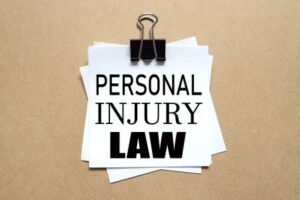“Authorized Vehicle Rule” Allows for Compensation in NJ Crash

When a person is injured while performing work duties, they are eligible to receive workers’ compensation benefits. That rule sounds easy enough to understand, but there are some nuances to it that employers try to get around.
For example, the law states that workers who are injured during their commute to work cannot receive workers’ compensation benefits. But what if the employee is doing something work-related during that commute?
A recent case in New Jersey asked this question. The New Jersey Supreme Court ruled in a unanimous decision that an employee for a pest control company who was involved in a car crash while picking up office supplies suffered a compensable injury under the state’s “authorized vehicle rule.”
Under the authorized vehicle rule, when an employee is engaged in a work-related activity or an activity that requires time and effort to benefit the employer, the employee is conducting business authorized by the employer. However, there must be permission from an employer to engage in the activity in question.
The man was employed as a salaried pest control technician for Above All Termite & Pest Control in Lanoka Harbor. He was given a company vehicle and he used it to drive to various worksites that were assigned to him each morning. The employee was allowed to keep the company vehicle at his home at night. When he needed supplies, such as rodent traps or pesticides, he would drive to the company’s shop to pick them up. The man claimed to make these trips at least every three days.
One morning, the man was involved in a crash while driving to the Above All shop to pick up the supplies he needed. He suffered serious injuries in a crash. He had hit his head on the interior of his work vehicle and lost consciousness. He developed subdural hematomas that required surgery.
The insurance company for Above All denied the employee’s workers’ compensation claim, as the judge ruled that the man was injured while commuting to work. He dismissed the claim, alleging that the fact that the man was going to the shop to pick up supplies was irrelevant.
The Appellate division disagreed and reinstated the employee’s claim. Above All appealed to the Supreme Court, arguing that the Workers’ Compensation Act creates a “coming and going” rule in which injuries sustained while commuting to and from work are not compensable.
However, based on legislation adopted in 1979, there are four rules governing when an employee is considered to be in the course of employment:
- The “premises rule,” meaning the employee is at their workplace.
- The “special mission rule,” meaning the worker was running an errand for the employer’s benefit.
- The “paid travel time rule,” meaning the worker was being paid for the time spent traveling to the job site.
- The “authorized vehicle rule,” meaning the employee was using a vehicle authorized by their employer for business purposes.
Based on the situation, the Supreme Court ruled that the employee’s trip to the Above All shop to pick up supplies falls within the “authorized vehicle rule.” Since the employer had instructed its employees to stop by the shop to pick up supplies when needed, this minimized travel time and ultimately benefited the employer.
Contact a New Jersey Personal Injury Lawyer Today
Laws regarding workers’ compensation can be tricky. When is an employee on the clock? When are they considered to be commuting?
A Morristown work-related accidents attorney from The Law Offices of Michael P. Burakoff can assess your case and help you understand your legal rights. To schedule a free consultation, fill out the online form or call (973) 455-1567.
Source:
claimsjournal.com/news/east/2023/11/22/320553.htm

